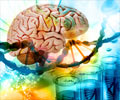A current study conducted on rhesus monkeys delving into the behaviour and brain function of moderate foetal alcohol exposure has thrown light on certain genetic factors in which infants who carry a short form of a gene called the serotonin transporter gene promoter are more prone to be affected by alcohol exposure.
Lead researcher Mary Schneider, the University of Wisconsin-Madison professor of kinesiology and psychology, claims that the new findings represent the first evidence of a genetic risk for foetal alcohol spectrum disorder—a condition characterized by profound mental retardation in its most severe form, and which is associated with deficits in learning, attention, memory and impulse control."The big concern used to be the link between foetal alcohol exposure and mental retardation, but today there is increased concern over behavioural problems in these children. If this genetic marker could provide a way of recognizing the most vulnerable foetal alcohol-exposed children early in life, perhaps we could help them to live more successful and satisfying lives," says Schneider.
She feels that the new findings may help explain why some children born to women who used to drink during pregnancy suffer birth defects, while others seem to escape unharmed.
"Children who are exposed to alcohol because their mothers drank during pregnancy have varying degrees of problems, and the same is true for monkeys who are exposed to moderate levels of alcohol in utero. So we know there are other factors involved," says Schneider, who worked with colleagues at UW-Madison, the University of Toronto and the National Institutes of Health.
Several previous studies of people and primates had suggested that carriers of a short form of the serotonin transporter gene promoter were at an increased risk for depression, but only if they also experience adverse life events. Following up those results, Schneider’s team investigated two forms of the serotonin transporter gene promoter.
The researchers analysed data from an ongoing study into the impacts of moderate fetal alcohol exposure on behaviour and brain function in monkeys to test whether the gene's short form might also raise the risk of foetal alcohol-induced problems. The mother monkeys in the study's experimental group consumed the equivalent of just two alcoholic beverages five times a week during breeding and pregnancy.
Advertisement
It was found that foetal alcohol-exposed infants who carried a copy of the short form were more irritable and reactive to stress than either control group infants who were not exposed to alcohol or those who were exposed but had two copies of the gene's long form.
Advertisement
She is now studying whether the new findings fit a larger pattern of foetal alcohol-induced problems as the monkeys grow up because extreme irritability and stress responsiveness in infants can themselves lead to problems.
"If a baby is very irritable and stress reactive, one of the things this can interfere with is the caregiver-infant interaction. In real life, negative events tend to cluster. So if there's alcohol in the environment, there may also be stress. And then if you have an irritable baby, this all could have cascading effects on the child's psychological development," she says.
Schneider’s team is also investigating other gene alleles for their potential to interact with foetal-alcohol exposure and put children at risk.
"Genetics by themselves rarely tell us much, because life experiences may trigger the actual effects of our genetic vulnerabilities. So the more knowledge we have about the ways that genes interact with environmental factors, the more we can envision interventions early in life to help a vulnerable child," says Schneider.
The study has been reported online in Biological Psychiatry.
Source-ANI
GAN /J











